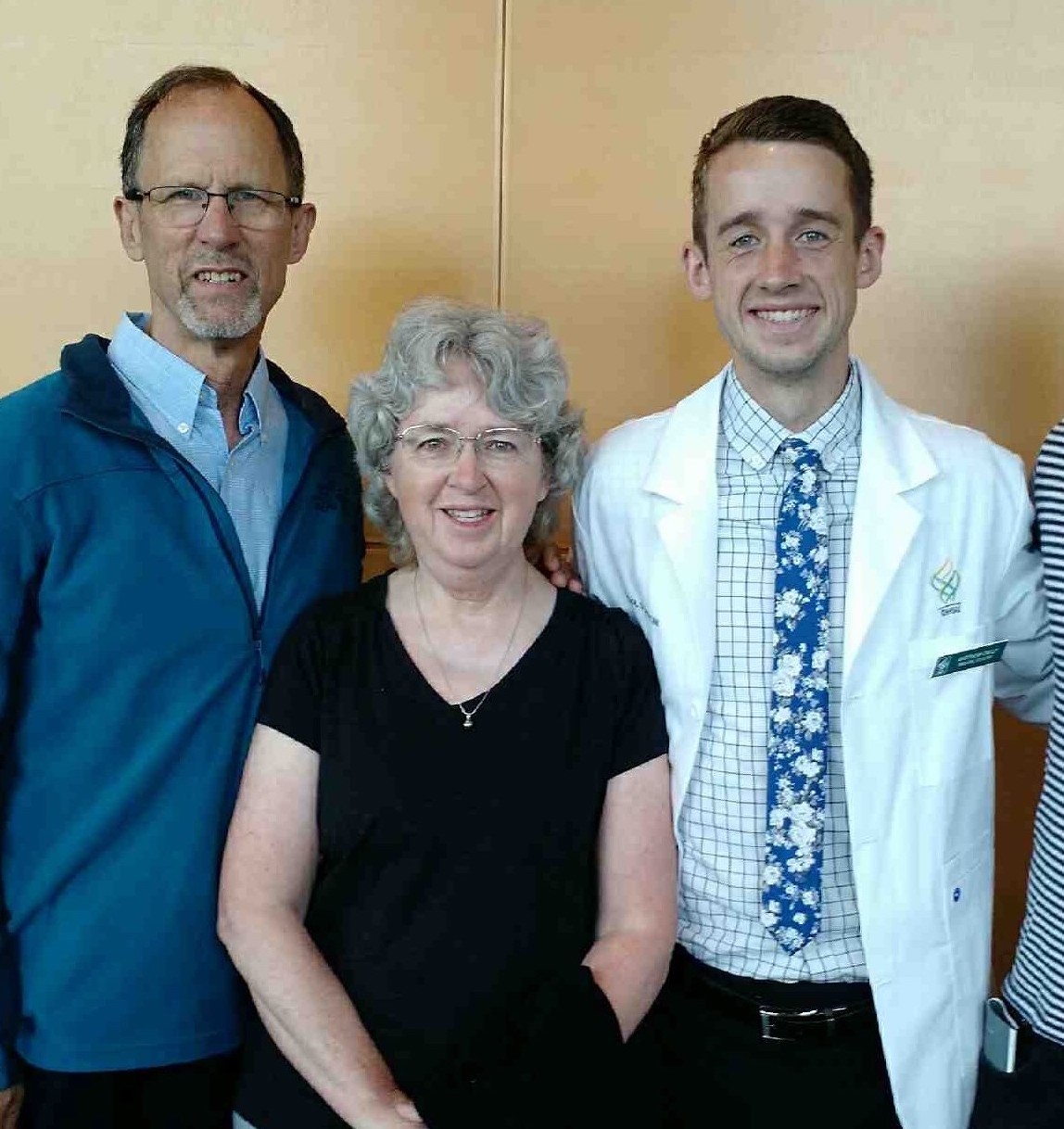

Matthew Dally is currently in his first year of medical school at OHSU. His path to this point has been somewhat untraditional in that he earned a BS in mechanical engineering from UP, then an MS in Aeronautics and Astronautics from Purdue University, and then worked as an aerodynamicist and biomedical engineer in the Portland area for 3 years. His transition to medicine began when he started coaching youth soccer and realized the satisfaction that he derived from working with people on a one on one and small group basis. As part of his transition he started taking post bac biology and chemistry classes, volunteering at The Free Clinic of Southwest Washington, and conducting research in developing a new diagnostic and prognostic tool for patients with Peripheral Arterial Disease.
1. What is the best part of your role as a medical student / health care provider?
The best part of my current position is getting to work with a wide variety of people. Currently most of my interactions are with other students as we develop the knowledge and skills needed for clinical settings. Everyone has a vastly different background, and this is reflected in the ideas they share and the perspectives they bring to conversations. Getting to lean on other’s areas of expertise as I share my own is highly rewarding and has certainly led to a sense of cohesion within the class. I am most looking forward to starting a scholarly research project (potentially in pediatric surgery or a continuation of the vascular surgery I have been a part of) and preceptorships, a unique opportunity for OHSU medical students to be a part of clinical work during the didactics portion of our education.
2. How did your time at UP help you with your career path? (involvement, academics, research, advising, etc.)
UP was vital to both to my initial development as a thinker and scholar as well as in my transition from engineering to medicine. UP is unique in its availability of resources (i.e. developing relationships with professors, research in a variety of fields, cross discipline cooperation, ect.). Taking advantage of these unique opportunities can set you apart from someone who may not have had similar chances at larger universities.
Another unique aspect of the University of Portland is the community that you continue to belong to, even after graduation. I leaned heavily on premed advisors for guidance in the process of changing careers. My ideas were welcomed and challenged in a way that allowed me to be sure I was making the right decision in switching careers and allowed me to convince medical institutions I was making the correct choice in pursuing this path. Additionally, I leveraged the Career Center in finding jobs that would show my motivation for the medical field as well as in preparing for interviews for medical school. I know both of these options will continue to be available to me going into the future.
3. What are your favorite memories of UP / any highlights?
My best memories at The University of Portland involved conducting research and being part of the club soccer team. Conducting research was my most challenging experience. It forced me into a situation that I had to expand my out thinking outside the traditional confines of the classroom to find answers that could not be looked up in the back of a book. This helped me develop a curiosity in the unknown and the creativity to make logical links between bits of information. As a medical student this will serve me well as it will create a logical network of information in my mind rather than having a list of memorized facts.
My best friends in school were members of the club soccer team and many of these friends continue to be my best friends. In fact, the first person I told that I wanted to switch into medicine was a teammate who had just been accepted into medical school himself. Getting to share this experience with him has brought us even closer together.
4. What general advice would you give aspiring pre-health types?
Don’t do anything because you are “supposed” to do them, do them because you genuinely enjoy it and it will help you become the person you want to be. There are a lot of external pressures on pre-health types to check boxes and have certain experiences that they can relate to their chosen field (i.e. shadowing, volunteering, research, ect.). Granted, you can participate in many of these activities and write great essays based on your experiences that will help you get interviews. All the interviews are conducted by people who will see right through you if you don’t embody the experience and can talk passionately and genuinely about it.
During my own interviews I mainly discussed two activities I participated in, my research in hypersonic aerodynamics and my soccer career, specifically in the coaching I have done over the last few years. I approached both experiences with passion and that was reflected in the interviews I conducted. I was also prepared to answer the question of how it relates to medicine.
Health career fields are difficult. If your experiences don’t naturally lead you down the path you have chosen, it may be wise to consider other options. If your experiences do lead you down the path of your chosen health career and you are able to articulate why then getting into school and having a bring career ahead of you will only take time to achieve.